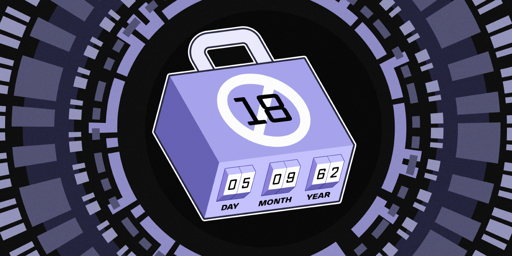This consolidation of power is a dream come true for the Big Tech platforms, but it’s a nightmare for users. While the megacorporations get more traffic and a whole lot more user data (read: profit), users are left with far fewer community options and a bland, corporate surveillance machine instead of a vibrant public sphere. The internet we all fell in love with is a diverse and colorful place, full of innovation, connection, and unique opportunities for self-expression. That internet—our internet—is worth defending.



No, as soon as you ask the government to send a site a token verifying you, you’ve given up your privacy to the government.
Also, how are smaller sites going to pay for this service? This is the tech bros using the religious nuts to pull the ladder up behind them. Locking in the monopoly. The only answer is the freedom we’ve had for the last 35 years.
Well, as much as I hate it, there’s no privacy when it comes to your government, and this is the case even since the internet was a thing.
Yes, we can keep some stuff obscured from the government, but the fact is that they know everything about us since we are born (probably even before). We need driver’s license, passport, bank accounts, registering homes, cars, even dogs, putting kids in the school system, health services, the list seems infinite.
But that does not mean we have to stop pushing back, because if we do, we’re utterly fucked.
My government doesn’t know everything about me. Look at the news and how long it takes for basic information about a high profile criminal to come out. It takes a lot of investigative effort to put all that info together, even if it’s all largely from various government agencies.
Some stuff is easy to track (e.g. registrations), but a lot isn’t. That means there’s absolutely precedent for privacy from the government on things that don’t matter to it. Why should the welfare department need information about my driving history or whether I have a passport? It doesn’t, so it shouldn’t have access.
I agree, it shouldn’t, but I but they do. Don’t deceive yourself like that. As I said, some stuff you can (still) keep under wraps, that’s how criminals do it, but connecting the dots they almost invariably get caught, sooner or later.
Right, like Al Capone got caught for tax evasion instead of all the murders and whatnot. If they’re digging, they’ll find it, and they can get almost anything with a warrant.
My point is that governments are generally pretty dysfunctional with information sharing, so even if they have a piece of information, it’s unlikely the appropriate agency has it. They’re getting more and more information the more crap like age verification gets passed, but that doesn’t change the dysfunction between agencies.
I can never disagree with this premise. Government institutions are dysfunctional and broken as hell, regardless of the country we’re referring to. And that alone supports your point, so I have to say, you are right, not one single institution has all our info. The sum of all of them may, however, have it all. Should they choose to organize all our data and have it centralized (say one database for all institutions to feed from) it’s just a matter of merging the data and giving all of them access, even if they use different systems.
That’s where I’m going with this. We do need to obscure as much as we can, but knowing what we’re not able to keep private anymore is pivotal to focus on those things that we can keep under our control.
Agreed.
My point is that it’s not hopeless. We can have reasonable privacy today, and we can change the laws to protect the rest. If we just assume we don’t have privacy, our governments will continue to take.
Then, I apologize, as it seems that I misrepresented your comments. Yes, we can still safeguard our privacy, and we should. This will need a very good chunk of the population making changes, educating children on the dangers of not having privacy, and how the government works for the population, not the other way around. This will require many to get out of their comfort zone, and stop providing data and/money to the corporations that have most individuals convinced that we can’t live without their services, which is completely false. This will be painful, but then again, what revolution isn’t?